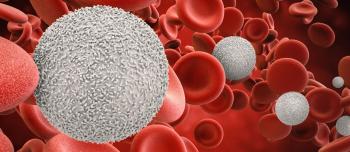Last month a test to help screen the potential effectiveness of two new therapies for treating patients with the hepatitis C virus (HCV) became available in the US. HCV GenoSure NS3/4A, manufactured by Burlington, NC-based Laboratory Corporation of America® Holdings, is a highly sensitive nucleic acid sequencing assay for commercial and clinical trial use.
HCV GenoSure NS3/4A scans the genetic sequence in a patient’s blood sample for mutations associated with the replication of HCV. The test was developed because previous studies showed that some HCV variants containing the mutations NS3 and NS4A are more resistant to boceprevir and telaprevir, two new protease inhibitor drugs approved to treat HCV. In clinical trials, patients with those mutations experienced suboptimal response to the drugs.
In May 2011, the U.S. Food and Drug Administration approved Merck’s boceprevir under the brand name Victrelis™ and Vertex Pharmaceutical’s telaprevir under the brand name Incivek™. The new drugs, known as direct-acting antiviral (DAA) agents, augment the current standard of treatment--weekly injections of pegylated interferon and a daily ribavirin oral pill. Nearly 50% of patients do not respond to the current combination therapy alone. Even patients who do respond often experience debilitating side effects that can last the duration of the treatment—either 24 or 48 weeks. The new drugs are expected to cut treatment time in half for some patients.
Left untreated HCV can cause liver cancer, cirrhosis, end-stage liver disease and liver failure. Resistance testing to identify NS3 and NS4A mutations in patients could help clinicians make more optimal treatment decisions. Success in HCV treatment is typically defined by a patient’s ability to “clear” the virus by achieving a sustained virological response (SVR) for at least six months after completing therapy. Though not technically a cure--HCV is often not completely eradicated from the liver--SVR is still the goal for clinicians. Lowering the viral load to undetectable levels in the bloodstream decreases the disease’s potency and its harmful effects.
Source: Clinical Trials Week, September 5, 2011





